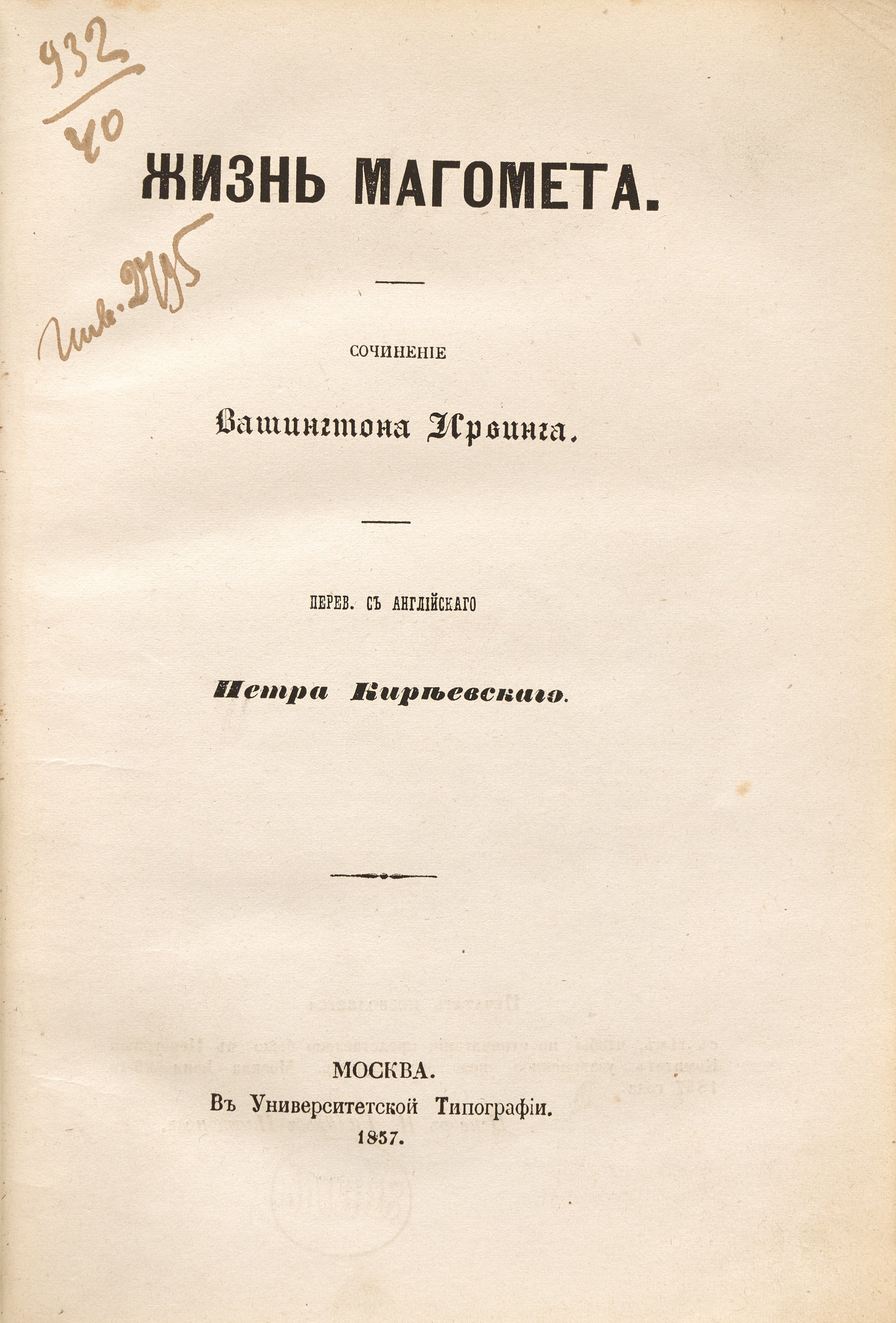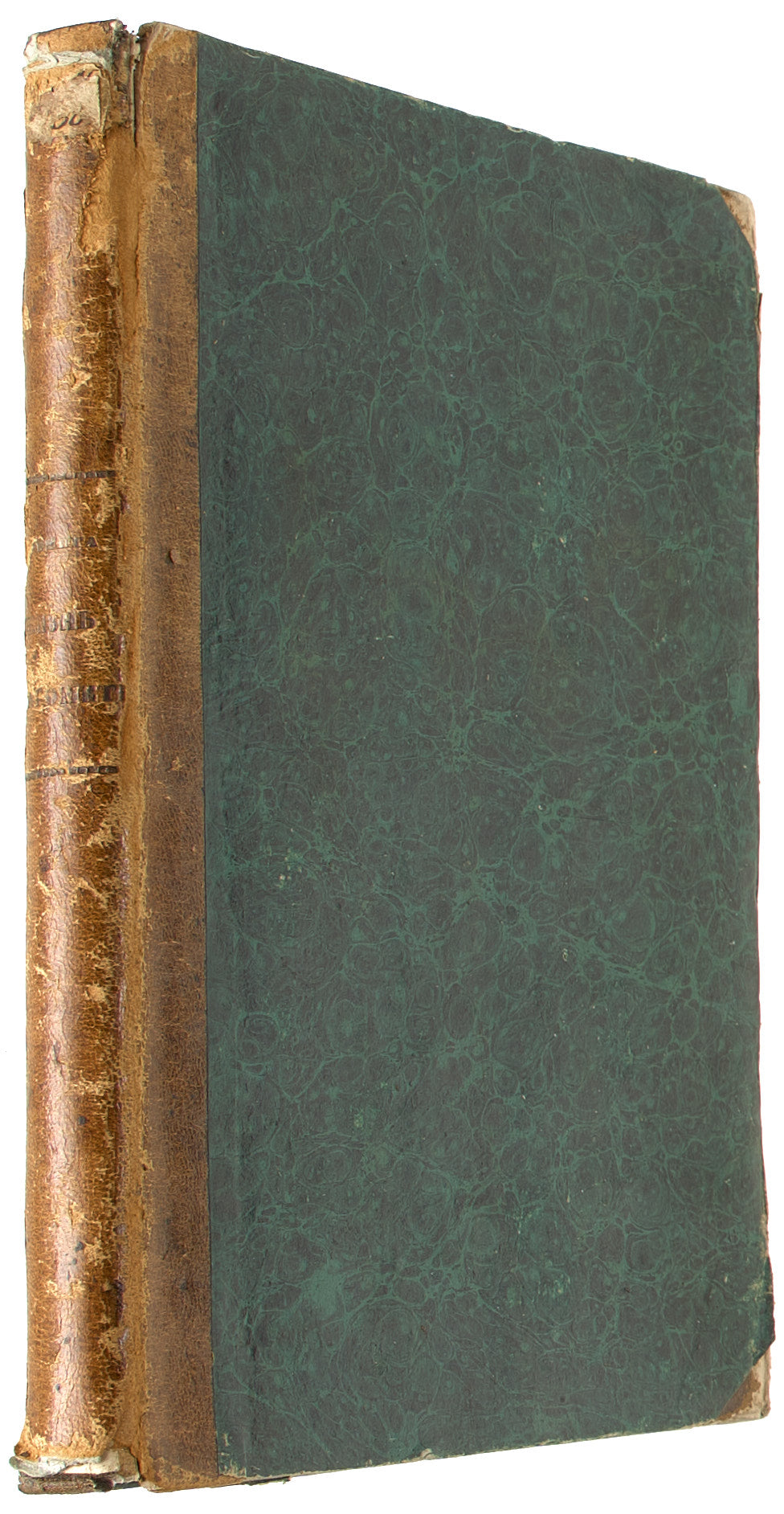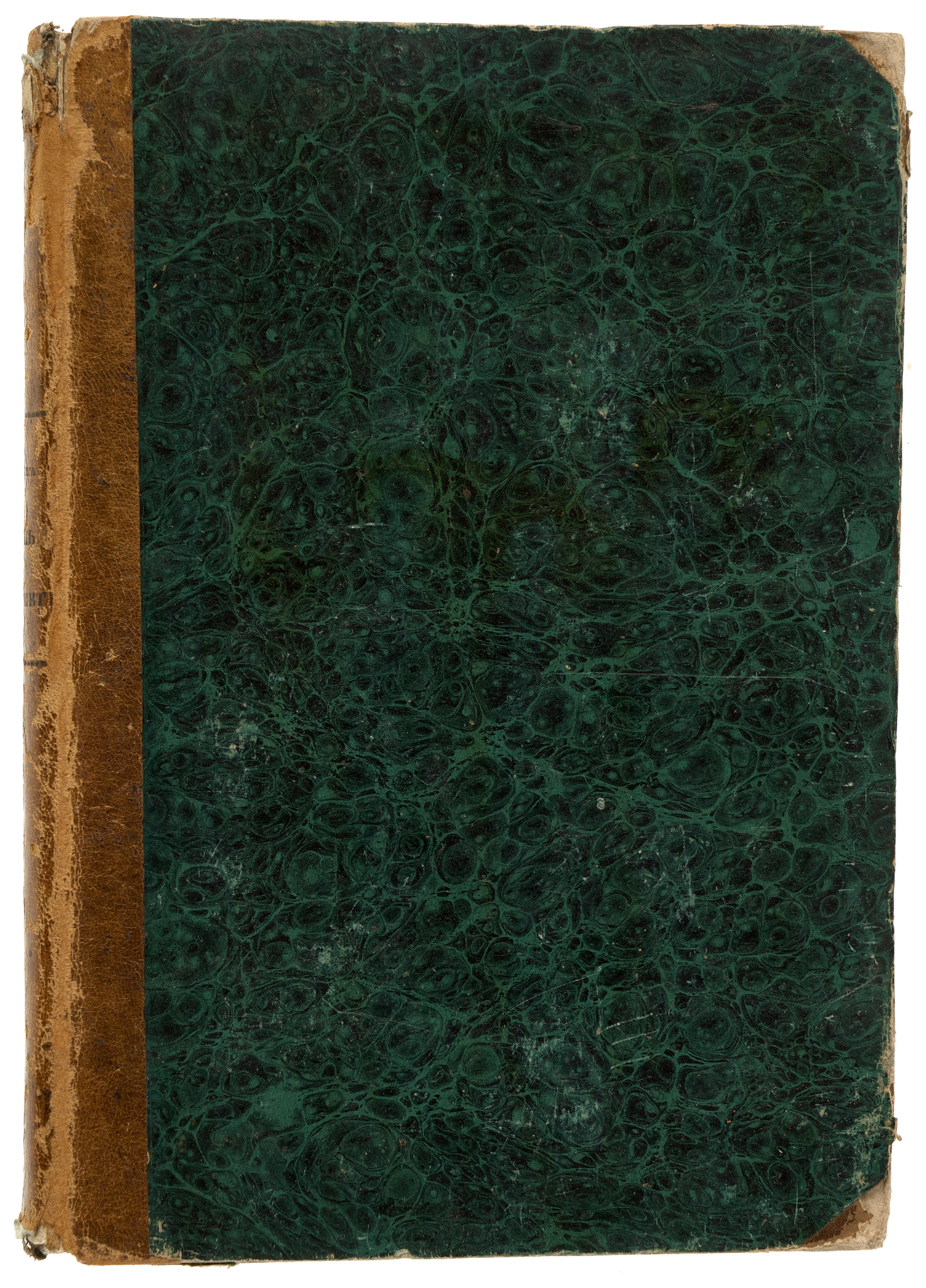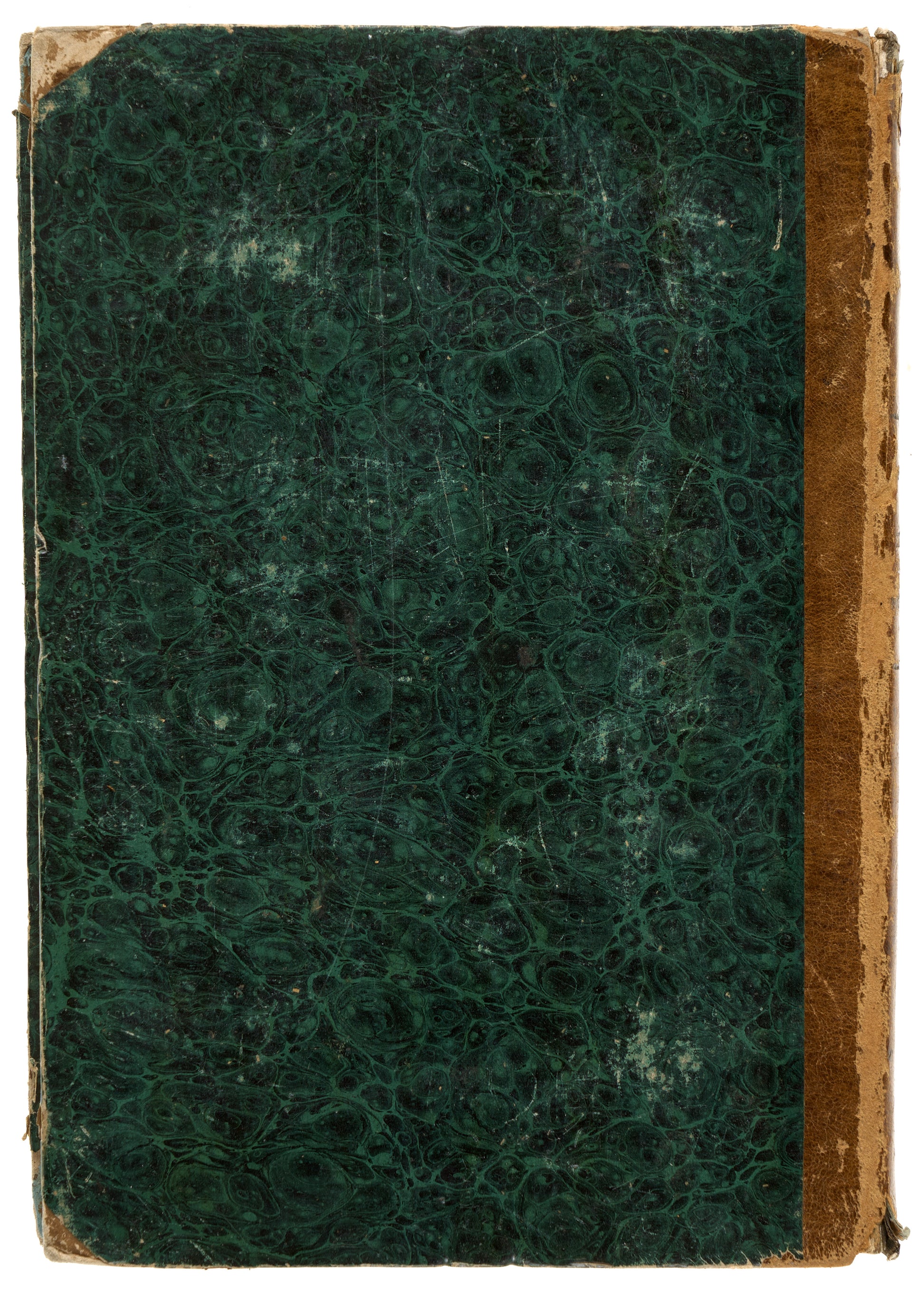Irving, Washington
Life of Mahomet. First Russian translation.
Life of Mahomet. First Russian translation.
Couldn't load pickup availability
Irving, Washington [Life of Mahomet]. Zhizn' Magometa.
Translation from English by Petr Kireevskii.
Moskva, V Universitetskoi Tipografii, 1857.
8vo, [4], 290, [1] pp.
In contemporary half leather.
In good condition, rubbed, losses to corners and spine, traces of library label to spine, mark to title in ink, illegible library stamps in Arabic script, several leaves misbound out of sequence (pp. 241–256).
First Russian translation. First edition.
Despite the fact that the Russian Empire were Muslim had a large Muslim population, most Russians had limited and often biased knowledge of Islam, and Orientalist scholarship was only developing in the 19th century. Russian policy toward Islam fluctuated between repression and periods of relative toleration or pragmatic accommodation. However, no well-educated Russian in the nineteenth century could ignore the significant role Islam and Muslim peoples had played in the empire’s past. One of the few contexts in which Muslims appeared in Russian poetry and fiction was the empire’s prolonged, often brutal military campaign to conquer the largely Muslim-populated Caucasus.
It was in this context that the appearance of 'Life of Mahomet' (1850) by Washington Irving (1783–1859)—an American writer and diplomat, and one of the first American authors to gain international recognition—became a notable event in Russian intellectual circles. Irving’s biography is widely regarded as the first major Western work to portray Muhammad in a relatively sympathetic and balanced light. More than a straightforward biography, ‘Life of Mahomet’ offers a character study that delves into Muhammad’s personality, motivations, and the historical circumstances of his mission. Irving, though writing from a 19th-century Christian perspective and stopping short of acknowledging Muhammad’s prophethood, presents him as a sincere reformer, intellectually gifted and guided by a deep religious purpose.
The book was translated into Russian by Pyotr Kireevskii (Kireevsky; 1808–1856), a folklorist, translator, philologist, and ardent Slavophile. Kireevsky’s involvement is especially intriguing, given the Slavophile movement’s emphasis on Russia’s spiritual heritage and suspicion of Western liberalism—making his choice to translate this Western-written biography of the founder of Islam particularly significant. The translation was published posthumously.
It is known that Fyodor Dostoevsky owned a copy of 'Life of Mahomet' (this first edition), and traces of Islamic influence can be found in some of his works. Interestingly, Dostoevsky’s interest in Islam and Muslims may have been linked to his epilepsy—referred to in his time as the 'falling sickness'—a condition he shared with Muhammad and which he believed granted him a special insight into Islamic spirituality.
By the way, the first Russian book about Muhammad was most likely 'Magomet kak Prorok'('Muhammad as a Prophet') by Akhmet Devlet-Kildeev, one of the first Tatar Muslim modernists and publicists, published only in 1881. In the preface, the author writes that 'it is not unnecessary to acquaint the Russian public with the religion of Muhammad, about which it has only the vaguest notions'.
We couldn’t trace any copy of this edition in the USA or European libraries via OCLC.








